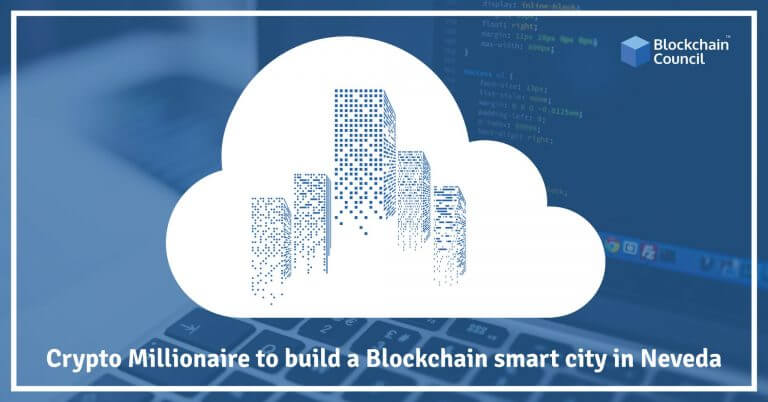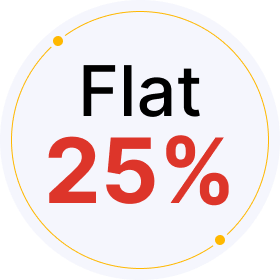
- Toshendra Kumar Sharma
- June 27, 2020
Want to know what is the relationship between blockchain technology and social impact? If your answer is probably yes, you have landed at the right page. This article provides a quick revision to the blockchain and focusses on case studies based on blockchain among various sectors.
Learning Of Blog
- A Quick Revision to Blockchain Technology
- Social Impact Case Studies
- The Verdict
A Quick Revision to Blockchain Technology
Building on the permissionless nature of the internet, blockchain has the potential to enhance decentralization, transparency, equality, and accountability on the internet. What makes blockchain unusual is its ability to store data immutably without relying on any intermediary or central authority, which allows it to preserve its integrity and prevent hacking other manipulation attempts. Bitcoin was the first application of this technology, and if we talk about its use-cases, we will find that its biggest impact is the financial sector, followed by e-commerce, supply chain, retail, healthcare, and so on. The other major area that is also being significantly impacted is social projects.
The technology has recently gained a lot of attention from blockchain professionals and blockchain experts, creating a lot of opportunities for blockchain enthusiasts.
Social Impact Case Studies
Now, as we have understood the concept of blockchain, let’s explore some of the social impact case studies.
Domain- Agriculture
Case Study-AgriDigital
Farmers suffer from counterparty risk when selling their crops to buyers in agricultural supply chains due to various reasons. This is because farmers have to wait for days and even weeks to receive their amount. Other problems include food fraud and contamination, along with a lack of transparency in the agriculture domain.
AgriDigital is an Australian company with a cloud-based commodity management platform that connects farmers and value chain actors. With blockchain, each transaction is immutably tracked on the platform and payments occurring in real-time through smart contracts functionalities, creating a better life for low-wage farmers.
Domain: Energy, Climate, and Environment
Case Study: Grid Singularity
The energy sector has many inefficiencies in terms of a highly regulated market, energy losses during transmission, etc.
Blockchain has several important applications in the energy, climate, and environment domain. Using a decentralized platform with more data control and micro-optimizations of energy, it can foster the creation of micro-grids in deregulated markets and can facilitate peer-to-peer transactions of energy and payments along with improving the efficiency of existing grids.
Grid Singularity possesses a new distributed energy utility system, where energy can be sourced and distributed in a decentralized, more efficient way.
It is creating an open Internet-based decentralized energy data exchange platform built on the blockchain where all transactions will be securely stored. It supports a range of valuable applications and will enable forecasting for smart grid balancing, facilitate investment, trade of green certificates, and energy trade validation.
Domain: Democracy and Governance
Case Study-e-Estonia
From voting to citizen participation, and crowdfunding distributed ledger technologies has the potential to eradicate various issues in government sectors. Due to technology added security, it is massively adopted and appreciated in democracy and governance space.
e-Estonia, launched in 2008, is named as the most advanced digital society of the world and is known to provide transparency, trust, and efficiency in the government domain. The introduction of e-ID cards and digital signatures form the basis of verification for almost every government service such as land titles, business registry, healthcare. It empowers citizens to track all government-related transactions that use their personal information in an audit log, accessible through the state portal.
Domain: Financial Inclusion
Case Study: Mojaloop
In traditional healthcare, patients’ records are scattered across many different systems, making it difficult for doctors to access a patient’s full medical history and as a consequence of which individuals cannot reliably collate and share their own records. Blockchain-powered healthcare is highly regulated and enable digital health records exchange and pharmaceutical supply chain management by offering secure, decentralized, and efficient solutions in the healthcare space.
Modum.io offers an alternative monitoring system, unlike traditional monitoring. The platform uses blockchain to ensure that the data originated from a particular sensor and has not been tampered. Its precision monitoring solutions are developed according to pharma standards (GAMP5) and follow GxP requirements that allow for customized measurement profiles. It offers pharmaceutical condition monitoring and ensures quality from production to the end-user.
Apart from the above-mentioned sectors, blockchain is widely used in Digital Identity, Land Rights, Human Rights, amongst others. Consensys is another blockchain technology solution that collaborates with NGOs, enterprises, and universities to achieve the UN’s sustainable development goals.
The Verdict
From the above discussion, it is clear that blockchain has a close relationship with social impact projects, thus solving the world’s most pressing issues. From fraud and risk reduction to reduced administrative costs and faster border settlements coupled with improved accessibility, accountability, and transparency, blockchain can be seen as a one-stop solution for every domain.
We have just mentioned a few case studies, but there are plenty of them to explore. Further, if you want to learn more about blockchain and its use cases and become a certified blockchain expert, check out Blockchain Council.
To get instant updates about Blockchain Technology and to learn more about online blockchain certifications, check out Blockchain Council.


































































 Guides
Guides News
News Blockchain
Blockchain Cryptocurrency
& Digital Assets
Cryptocurrency
& Digital Assets Web3
Web3 Metaverse & NFTs
Metaverse & NFTs
